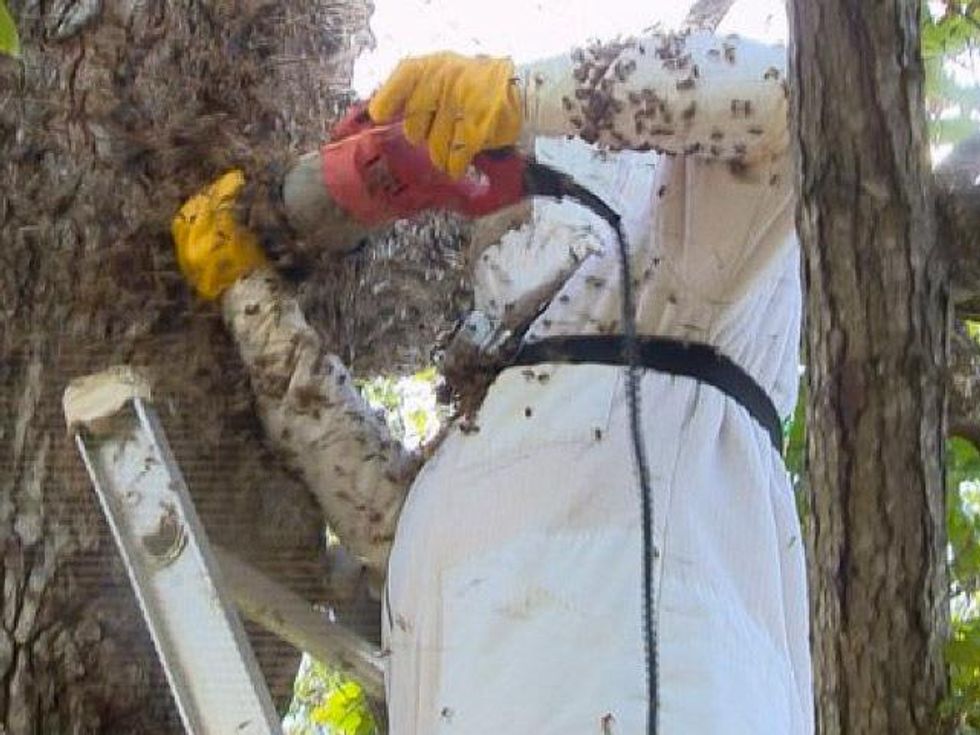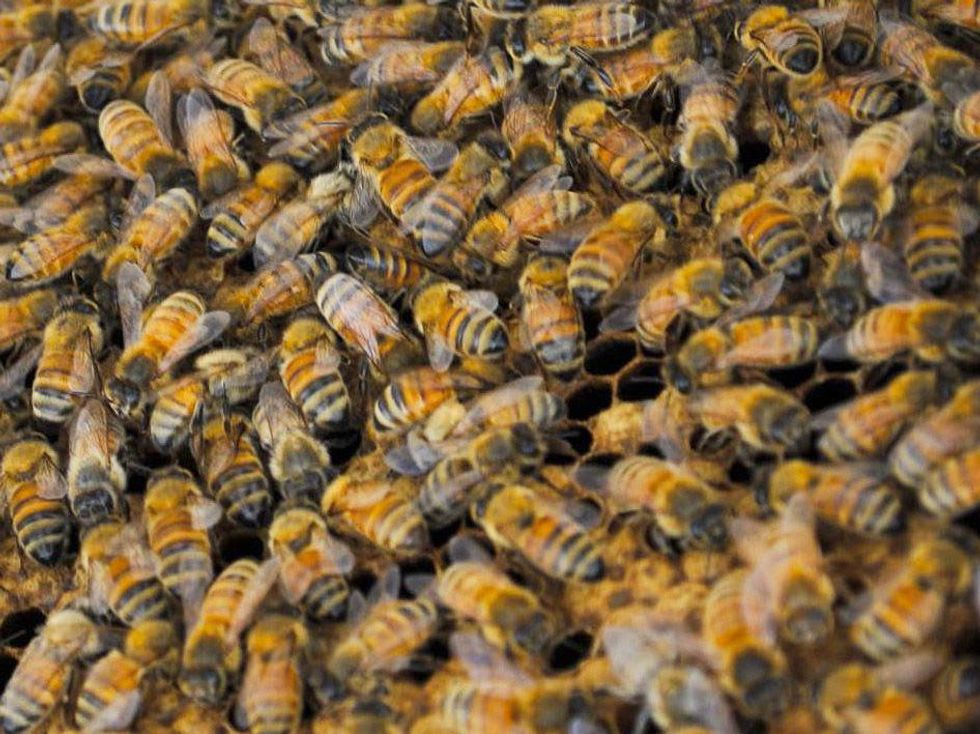Summer of Killer Bees
Summer of killer bees? Aggressive swarms plague Texas, leaving one dead and many others injured
While the global decline in bees continues to puzzle scientists, the Lone Star State appears to be undergoing a boom in its population of so-called "killer bees" — those aggressive honey bees that have slowly made their way north after escaping from a Brazilian cross-breeding experiment in 1957.
Texas has been making national headlines since early June, when a 62-year-old farmer from the Waco area was fatally attacked by a swarm of 40,000 killer bees after he disrupted a hive near an old chicken coop. The expert charged with removing the nest told area reporters that although the sub-species is still rare, he had spotted at least fives hives in the last month.
And the strange bee incidents keep coming:
- A woman in Pasadena nearly died on June 18 after bumping into a hive while mowing her lawn,
- In Arlington, a couple was severely injured on July 27 as they unsuccessfully attempted to save their two miniature horses from roughly 30,000 killer bees,
- A Cypress family discovered mores than 100,000 honey bees living in a front yard tree,
- In north Houston on Aug. 1, a dog named Ace was killed by a swarm while an elderly person was sent to the hospital. Days later, hundreds of thousands of bees were removed from a nearby oak tree, along with 250 pounds of honey.
Only at the microscopic level are killer bees distinguishable from the common variety cultivated in North America for centuries. Their stings are no more intense, but their uncanny ability to swarm and chase victims up to a quarter of a mile has earned the killer bee a starring role in plenty of horror films, including 1978's The Swarm (which is set in Houston, no less).
"Try not to panic and swat the bees — just run," says bee expert Claude "Lucky" Griffin.
The notorious killer bees — a cross between European and African strains — first emerged in Texas during the early 1990s and made their Harris County debut in 2001.
Bee expert Claude "Lucky" Griffin, whose Gotcha Pest Control company removed the recent north Houston hive, has dedicated almost three decades to understanding the local bee population. He tells CultureMap that he's noted a rise in killer bees throughout the region in the last five years.
As far as advice is concerned, he says the best defense is to maintain your home and yard to prevent the bees from setting up shop.
"Whether they're killer bees or not, it's always best to catch hives before they get too big," he recommends.
"All bees are aggressive at various times, but killer bees will just kick your ass . . . Once a hive is disrupted, your best bet is to put your shirt over your head and run like your going for the Heisman Trophy. Try not to panic and swat the bees — just run."



 The building at 4911 will be torn down for the new greenspace. Holland Lodge No. 1, A.F. & A.M./Facebook
The building at 4911 will be torn down for the new greenspace. Holland Lodge No. 1, A.F. & A.M./Facebook